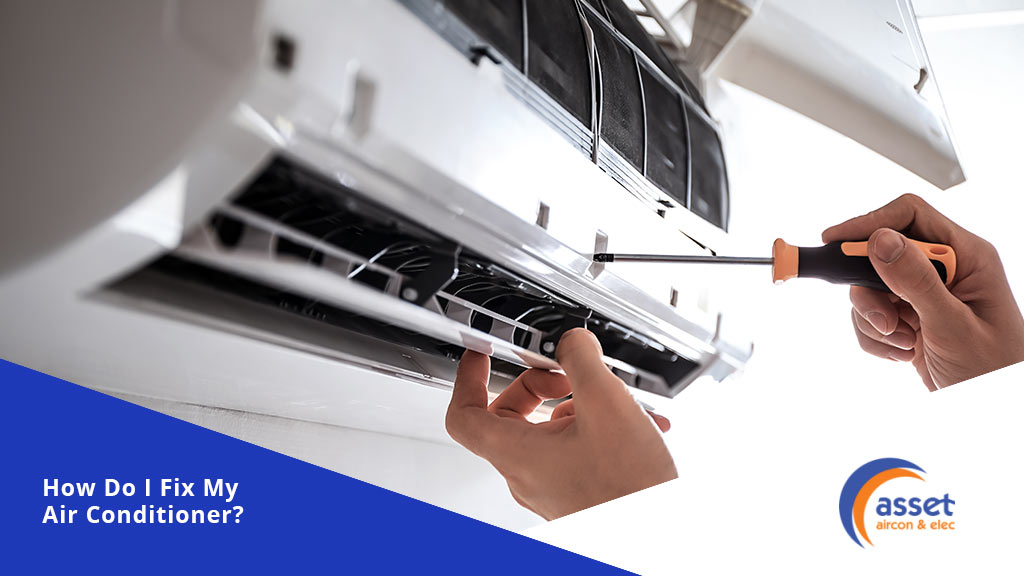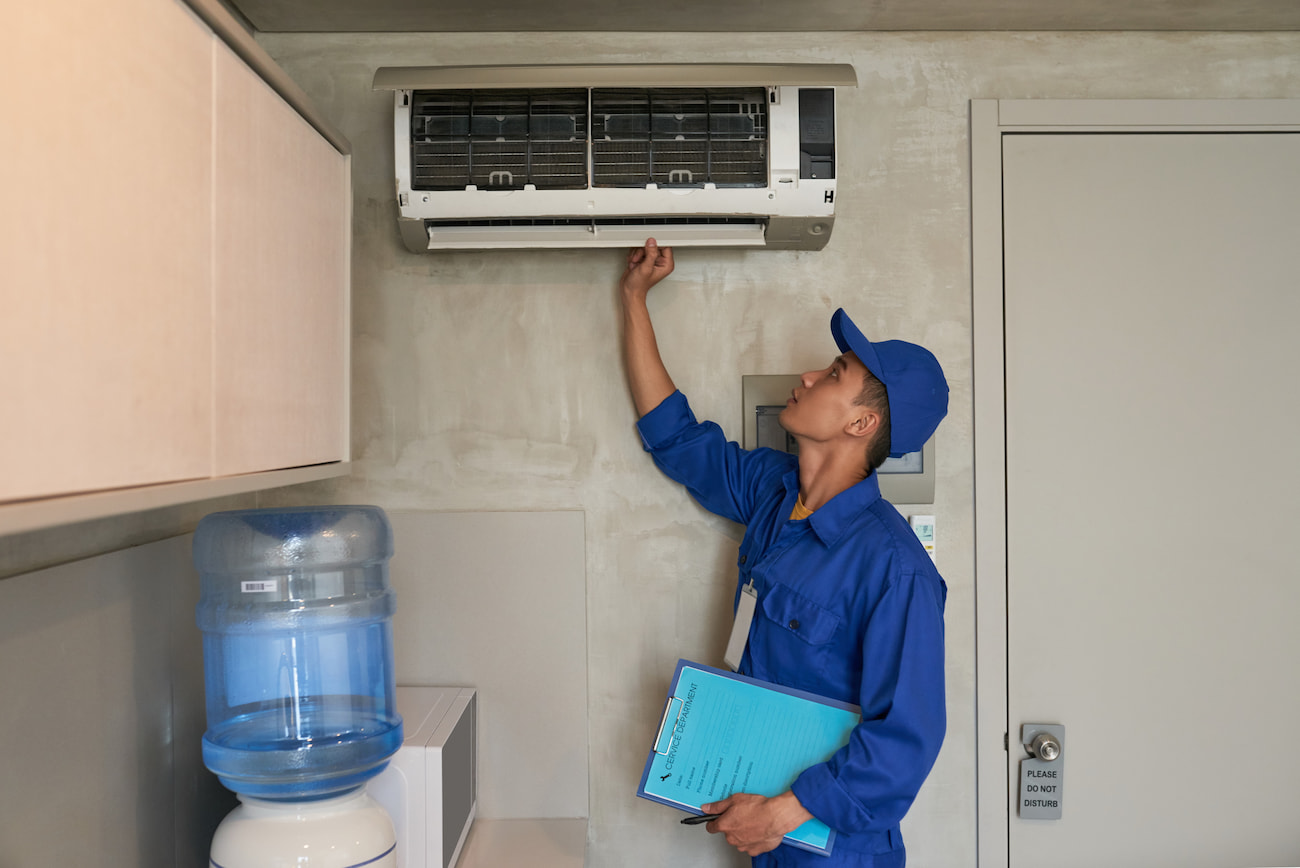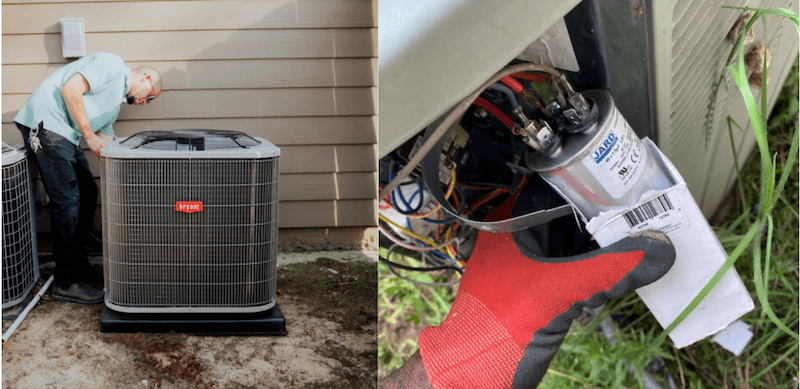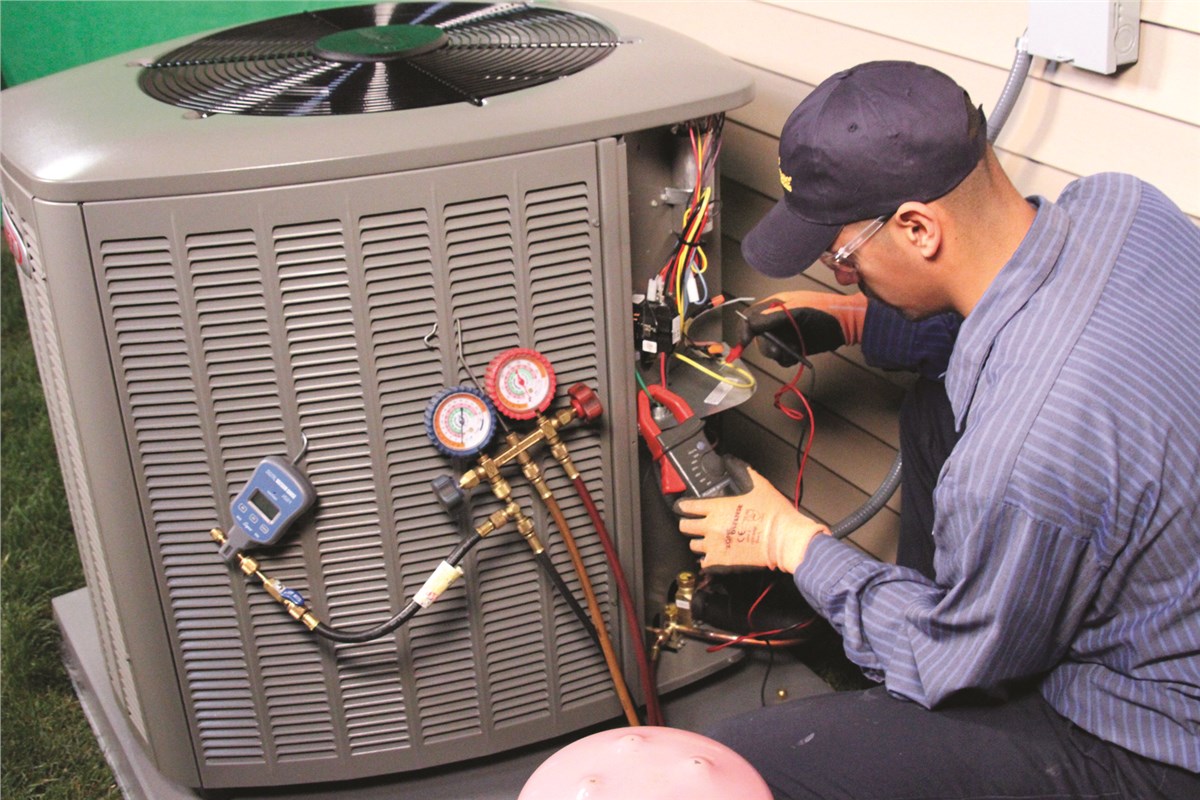Where Can I Get My Air Conditioner Fixed
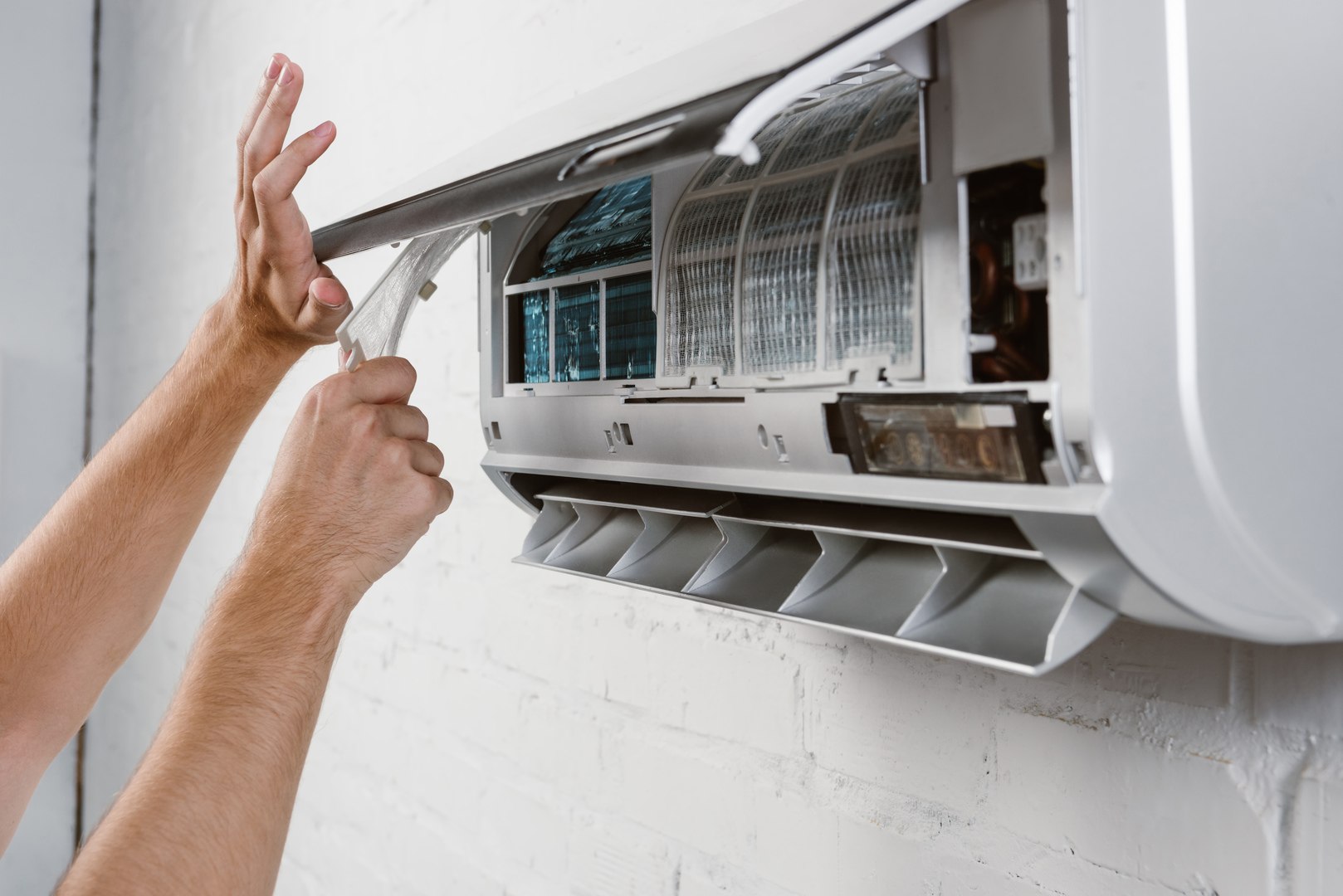
Where Can I Get My Air Conditioner Fixed? A Guide to Finding the Right HVAC Professional
A broken air conditioner can be more than just an inconvenience – it can lead to increased energy bills, uncomfortable living conditions, and even potential health risks. Finding a reliable and qualified HVAC (Heating, Ventilation, and Air Conditioning) professional to diagnose and repair your cooling system is crucial. This article will guide you through the process, highlighting energy-efficient repair options, smart home integration, and cost-saving opportunities.
Identifying the Problem Before You Call
Before frantically searching for "AC repair near me," take a moment to assess the situation. This can save you time and potentially reduce the overall repair cost. Consider the following:
- Is the unit completely dead? Check the breaker. A tripped circuit breaker is a common culprit and an easy fix.
- Is the thermostat working correctly? Ensure it's set to "cool" and the temperature is lower than the room temperature. For smart thermostats, verify the programming and connectivity.
- Are the air filters clean? Dirty air filters restrict airflow, causing the AC unit to work harder and potentially overheat. According to the U.S. Department of Energy, replacing a dirty filter can improve AC efficiency by 5-15%.
- Is the outdoor unit (condenser) free of debris? Clear any leaves, branches, or other obstructions that may be blocking airflow.
- Are there any unusual noises coming from the unit? Banging, grinding, or hissing sounds can indicate serious mechanical issues.
Documenting these observations will help you provide the HVAC technician with valuable information, leading to a faster and more accurate diagnosis.
Finding Qualified HVAC Professionals
Once you've ruled out simple fixes, it's time to find a qualified HVAC technician. Here are several reliable resources:
- Referrals from Friends and Family: Word-of-mouth is often the best way to find trusted service providers. Ask your neighbors, friends, and family for recommendations.
- Online Review Sites: Websites like Yelp, Google Reviews, and Angie's List provide customer reviews and ratings for HVAC contractors in your area. Pay attention to both the positive and negative reviews to get a balanced perspective.
- HVAC Contractor Directories: Organizations like the Air Conditioning Contractors of America (ACCA) and the North American Technician Excellence (NATE) maintain directories of certified HVAC professionals.
- Manufacturer Websites: If your AC unit is still under warranty, check the manufacturer's website for a list of authorized service providers. Using an unauthorized technician could void your warranty.
When researching potential HVAC contractors, consider the following factors:
- Licensing and Insurance: Ensure the contractor is properly licensed and insured. This protects you from liability in case of accidents or property damage.
- Certifications: Look for technicians who are certified by NATE or other reputable organizations. Certifications demonstrate a commitment to professional development and adherence to industry standards.
- Experience: Choose a contractor with experience repairing AC units similar to yours. Newer, energy-efficient models may require specialized knowledge.
- Customer Service: Pay attention to the contractor's responsiveness and communication skills. A good contractor will be prompt, professional, and willing to answer your questions.
- Pricing: Obtain quotes from multiple contractors before making a decision. Be wary of extremely low bids, as they may indicate substandard workmanship or hidden fees.
Understanding Repair Costs and Energy Efficiency
AC repair costs can vary depending on the complexity of the problem, the type of unit, and the contractor's rates. Common repairs include:
- Refrigerant Leaks: Repairing refrigerant leaks and recharging the system can cost between $200 and $800, depending on the size of the leak and the type of refrigerant. Upgrading to a more eco-friendly refrigerant during the repair can be a smart move, though it may increase the initial cost.
- Compressor Failure: A compressor replacement is one of the most expensive AC repairs, typically ranging from $800 to $2,500. In some cases, it may be more cost-effective to replace the entire unit.
- Fan Motor Replacement: Replacing a fan motor can cost between $200 and $600.
- Capacitor Replacement: Capacitors are relatively inexpensive parts, and replacement usually costs between $100 and $300.
- Ductwork Repair: Leaky ductwork can significantly reduce AC efficiency. Repairing or sealing ducts can cost between $200 and $1,000, depending on the extent of the damage. According to Energy Star, duct sealing can improve HVAC system efficiency by up to 20%.
When discussing repair options with the HVAC technician, inquire about energy-efficient solutions. For example, replacing an old, inefficient compressor with a newer model can significantly reduce energy consumption. Similarly, upgrading to a programmable or smart thermostat can help you optimize your cooling schedule and save money on your energy bills.
"Investing in energy-efficient HVAC equipment and smart home integration can provide a significant return on investment through reduced energy costs and increased comfort."
Exploring Rebates and Incentives
Many utility companies and government agencies offer rebates and incentives for energy-efficient HVAC upgrades. Check the Energy Star website and your local utility company's website for available programs. These rebates can help offset the cost of new equipment and make energy-efficient upgrades more affordable.
For example, the federal tax credit for energy-efficient home improvements can provide a significant tax break for homeowners who install qualified HVAC systems. Be sure to ask your HVAC contractor about available rebates and incentives when discussing repair or replacement options.
Smart Home Integration and Energy Savings
Integrating your AC system with a smart home platform can provide even greater control over your energy consumption. Smart thermostats allow you to remotely monitor and adjust your cooling schedule, track your energy usage, and receive alerts when there are problems with your system. Some smart thermostats even learn your preferences and automatically adjust the temperature to optimize comfort and energy savings.
In addition to smart thermostats, consider adding smart sensors to different rooms in your home. These sensors can provide real-time temperature and humidity data, allowing you to fine-tune your cooling schedule and ensure that each room is comfortable without wasting energy.
When to Repair vs. Replace
Determining whether to repair or replace your AC unit can be a difficult decision. Consider the following factors:
- Age of the Unit: If your AC unit is more than 10-15 years old, it may be nearing the end of its lifespan. Older units are typically less efficient and more prone to breakdowns.
- Repair Costs: If the cost of repairs is approaching 50% of the cost of a new unit, it may be more cost-effective to replace the system.
- Energy Efficiency: Newer AC units are significantly more energy-efficient than older models. Replacing an old, inefficient unit with a new, Energy Star certified model can save you a significant amount of money on your energy bills over time. SEER (Seasonal Energy Efficiency Ratio) is a key metric for comparing AC efficiency.
- Refrigerant Type: Older AC units may use R-22 refrigerant, which is being phased out due to its environmental impact. If your unit requires R-22 refrigerant, it may be difficult and expensive to obtain. Replacing the unit with a newer model that uses R-410A refrigerant or other environmentally friendly alternatives is a good long-term solution.
Consult with a qualified HVAC professional to assess the condition of your AC unit and determine the best course of action. They can provide you with a cost-benefit analysis of repairing vs. replacing the system, taking into account your energy savings and potential rebates.
Preventative Maintenance: Avoiding Future Problems
The best way to avoid costly AC repairs is to invest in preventative maintenance. Schedule regular maintenance appointments with a qualified HVAC technician at least once a year, preferably in the spring before the cooling season begins. During a maintenance appointment, the technician will:
- Inspect the unit for any signs of damage or wear.
- Clean the coils and other components.
- Check the refrigerant levels.
- Test the electrical connections.
- Lubricate moving parts.
In addition to professional maintenance, you can also perform some simple maintenance tasks yourself, such as cleaning the air filters regularly and keeping the outdoor unit free of debris. Following these tips can help extend the life of your AC unit and reduce the risk of breakdowns.
Conclusion
Finding the right HVAC professional to fix your air conditioner requires careful research and planning. By following the steps outlined in this article, you can find a qualified contractor, understand your repair options, explore energy-efficient solutions, and save money on your energy bills. Remember to prioritize licensing, certifications, experience, and customer service when selecting a contractor. And don't forget to explore available rebates and incentives to make energy-efficient upgrades more affordable. With a little effort, you can keep your AC system running smoothly and enjoy comfortable, energy-efficient cooling for years to come.
